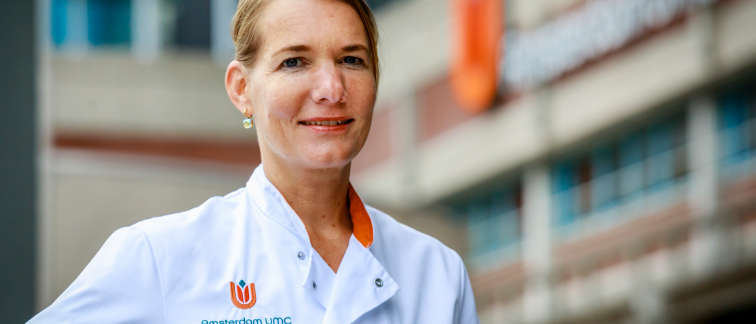Professor Yolande Pijnenburg will lead the clinical and translational research into dementia, especially at a young age, around the themes:
- (A) looking for the origin,
- (B) diagnosis & prognosis
- (C) treatment & prevention.
The research is highly translational in nature, whereby the chair holder for theme A explicitly seeks collaboration with other pillars, such as "Brain imaging", "Complex trait genetics" and "Cellular and molecular mechanisms "within the research institute Amsterdam Neuroscience.
For theme C Pijnenburg is looking for collaboration with partners such as Industry Alliance Office and Brain Research Center. In addition, Pijnenburg will act as medical director of the Alzheimer Center Amsterdam, in close collaboration with the head of clinical research Wiesje van der Flier and director Philip Scheltens.
“I have contributed to the description of young-onset Alzheimer’s disease phenotypes, and the reappreciation of the behavioral variant of Alzheimer’s disease. I have recently conducted 2 large descriptive studies on the right temporal variant of FTD and the primary progressive aphasias. I see the acknowledgement of clinical heterogeneity as the essential first step to identify underlying disease mechanisms. Therefore, I collaborate in national and international research that involves biomarker development for (subtypes of) dementia as well as the genetic and pathological background of these phenotypes,” Pijnenburg explained.
“More specifically, I aim to establish biomarkers for FTD and its subtypes. My current research focusses on the social cognitive deficits in FTD, ALS, and psychiatric disorders, that is possibly moderated by shared genetic vulnerability for specific neurons (such as von Economo neurons) and functional anatomical circuits. In this field, I have built an international collaborative network that allows for shared data collection and research by consortia.”

